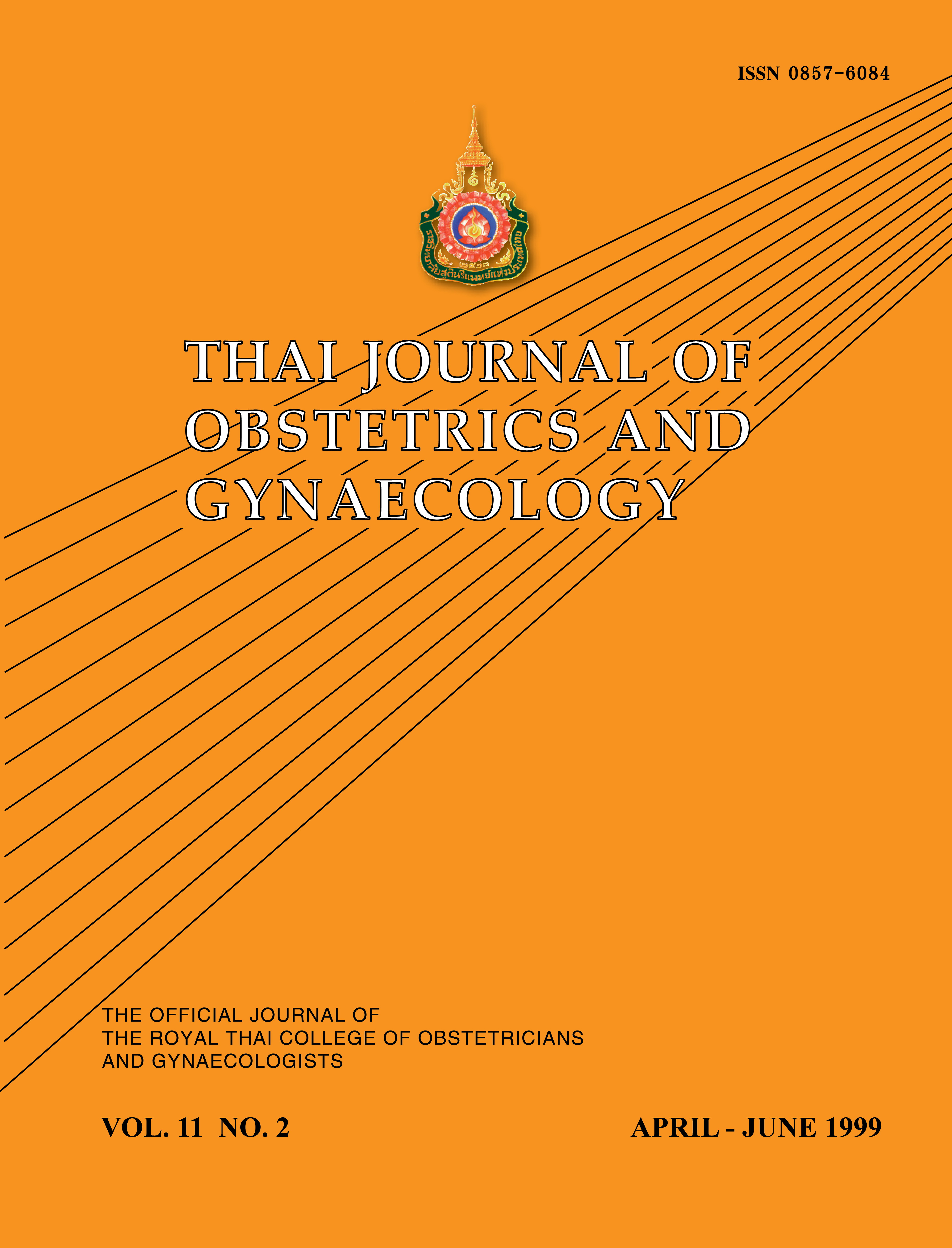Genetic Amniocentesis : 10 years experience at Songklanagarind Hospital
Main Article Content
Abstract
Objective To evaluate the outcome of genetic amniocentesis.
Subjects Pregnant women at risk of fetal chromosomal abnormalities who underwent genetic amniocentesis from January 1988 to December 1997.
Main outcome measures The prevalence of fetal chromosomal abnormalities and pregnancy outcomes.
Methods Genetic amniocentesis and fetal cell culture were performed and the outcomes were followed.
Results One thousand and sixteen pregnant women underwent genetic amniocentesis. Advanced maternal age was the most common indication for genetic amniocentesis (78.8%). The success rate of cell culture was 97.9%. There were 45 cases (4.5%) of abnormal chromo somes. Forty cases were terminated and five cases continued their pregnancies. The indication of abnormal sonographic findings had the highest percentage of abnormal chromosomes (27.8%). Trisomy 21 was the most prevalent. The abortion rate within 14 days after the procedure was 0.3% (3/1016). Pregnancy outcome of the fetuses with normal chromosome included spontane ous abortion 1.3%, dead fetus in utero 1.1%, premature delivery 9.0%, and term delivery 88.6%. Genetic counselling seemed to be difficult in some cases with rare chromosomal abnormalities.
Conclusion The prevalence of fetal chromosomal abnormalities was 4.5%. The fetal loss rate was low. Genetic counselling is very important and should be done before the procedure. It should be provided by a team of nurse counsellors, obstetricians, paediatricians, paediatric surgeons and clinical geneticists.
Article Details

This work is licensed under a Creative Commons Attribution-NonCommercial-NoDerivatives 4.0 International License.


